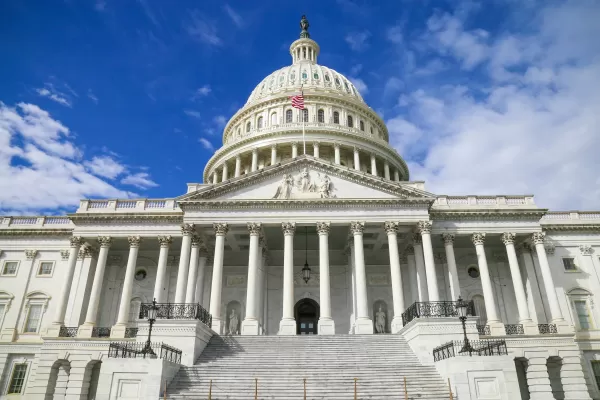AI-Powered Solutions Could Significantly Reduce Global Carbon Emissions
A recent study by the London School of Economics and Systemiq reveals that artificial intelligence could substantially lower global carbon emissions without sacrificing modern conveniences, positioning AI as a key ally in combating climate change.
The research highlights that intelligent AI applications in just three sectors could reduce greenhouse gas emissions by 3.2 to 5.4 billion tonnes annually by 2035.
Contrary to common concerns, these reductions would far exceed the carbon footprint generated by AI operations.
The report, titled ‘Green and Intelligent: AI’s Role in Climate Transition,’ views AI as a transformative force for building a sustainable and inclusive economy, rather than merely a tool for incremental gains.
Net-Zero: A Catalyst for Innovation
The study frames the transition to a net-zero economy as a unique chance for innovation, fostering sustainable, resilient, and inclusive growth rather than a challenge.
It examines three high-emission sectors—power generation, meat and dairy production, and passenger vehicles—which account for nearly half of global emissions. AI-driven efficiencies in these areas could more than offset the estimated 0.4 to 1.6 billion tonnes of annual emissions from AI data centers.
The researchers emphasize, “The case for leveraging AI in the climate transition is both compelling and essential.”
Five Key Ways AI Can Protect the Planet
1. Enhancing Complex Systems
Modern life relies on intricate networks for energy, transportation, and urban systems. AI can optimize these networks for greater efficiency.
For instance, AI can address renewable energy variability, such as power disruptions from inconsistent wind or solar output. DeepMind’s AI has already increased wind energy’s economic value by 20% by reducing reliance on backup power.
2. Accelerating Innovation and Minimizing Waste
Nearly half of the emissions cuts needed for net-zero by 2050 depend on emerging technologies, and AI is fast-tracking these advancements.
Google DeepMind’s GNOME tool has discovered over two million new crystal structures, potentially transforming renewable energy and battery storage. Similarly, Amazon’s AI-driven packaging algorithms have reduced material use by over three million metric tons since 2015.
3. Guiding Smarter Consumer Choices
Daily decisions, such as food choices and travel habits, could drive up to 70% of emissions reductions by 2050. AI simplifies making sustainable choices.
Tools like Google Maps’ fuel-efficient routing help users save fuel and reduce emissions. Smart home devices like Nest use AI to optimize heating and cooling, potentially cutting millions of tonnes of CO2 if widely adopted.
4. Forecasting Climate Trends and Policy Impacts
AI’s ability to analyze vast datasets enables precise climate predictions and informed policy design.
Initiatives like IceNet, developed by the British Antarctic Survey and the Alan Turing Institute, improve sea ice forecasts, aiding communities and businesses. AI also supports governments by analyzing global case studies to craft effective climate policies.
5. Strengthening Safety During Extreme Weather
As climate-related disasters grow, AI-powered early warning systems are critical for safety.
Google’s Flood Hub leverages machine learning to deliver flood forecasts up to five days in advance across over 80 countries, giving people time to prepare and evacuate.
Data Backs AI’s Role in Emissions Reduction
The study’s findings indicate AI could:
- Reduce power sector emissions by 1.8 billion tonnes annually by 2035 through optimized renewable energy use
- Cut 0.9 to 3.0 billion tonnes yearly by enhancing plant-based proteins to mimic meat’s taste and texture
- Lower vehicle emissions by up to 0.6 billion tonnes each year via shared mobility and advanced battery technology
However, the researchers warn that AI’s potential won’t be fully realized without proactive governance. They advocate for an “active state” to ensure AI benefits both people and the planet equitably.
“Governments must ensure AI is deployed effectively to accelerate a fair and sustainable transition,” the study concludes.
This involves incentivizing green AI research, regulating environmental impacts, and investing in infrastructure to make AI’s benefits accessible globally.
Through international collaboration and guided innovation, AI can unlock its full potential to combat the climate crisis, paving the way for a thriving, sustainable future.
Related: Can the Grid Handle AI’s Rising Energy Demands?
Interested in AI and big data insights from industry experts? Explore the AI & Big Data Expo in Amsterdam, California, and London, co-located with events like the Intelligent Automation Conference, BlockX, Digital Transformation Week, and Cyber Security & Cloud Expo.
Discover more upcoming enterprise technology events and webinars by TechForge here.
Related article
 Google Gemini Introduces Read-Aloud Feature for Docs
Google Docs introduces an innovative AI-powered text-to-speech feature that transforms written documents into customizable audio experiences. The newly released functionality allows users to generate natural-sounding voiceovers from their text conten
Google Gemini Introduces Read-Aloud Feature for Docs
Google Docs introduces an innovative AI-powered text-to-speech feature that transforms written documents into customizable audio experiences. The newly released functionality allows users to generate natural-sounding voiceovers from their text conten
 YouTube Unveils Free AI Tool for Video Background Music Creation
YouTube is revolutionizing content creation by introducing an innovative AI tool that generates royalty-free instrumental tracks, eliminating copyright concerns for video makers, according to TechCrunch. The platform unveiled this cutting-edge functi
YouTube Unveils Free AI Tool for Video Background Music Creation
YouTube is revolutionizing content creation by introducing an innovative AI tool that generates royalty-free instrumental tracks, eliminating copyright concerns for video makers, according to TechCrunch. The platform unveiled this cutting-edge functi
 Microsoft Offers Free Copilot AI Services to US Government Employees
US Government Embraces AI with Microsoft Copilot RolloutThe US federal workforce will soon have AI assistance on their devices at no additional cost through Microsoft Copilot. This initiative stems from a landmark agreement between Microsoft and the
Comments (2)
0/200
Microsoft Offers Free Copilot AI Services to US Government Employees
US Government Embraces AI with Microsoft Copilot RolloutThe US federal workforce will soon have AI assistance on their devices at no additional cost through Microsoft Copilot. This initiative stems from a landmark agreement between Microsoft and the
Comments (2)
0/200
![EllaJohnson]() EllaJohnson
EllaJohnson
 July 29, 2025 at 8:25:16 AM EDT
July 29, 2025 at 8:25:16 AM EDT
This AI emissions study is wild! If it can really cut carbon without us giving up our comfy lifestyles, I’m all in—sign me up for a smarter planet! 🌍


 0
0
![RichardGonzález]() RichardGonzález
RichardGonzález
 July 23, 2025 at 12:59:29 AM EDT
July 23, 2025 at 12:59:29 AM EDT
This AI emissions study is wild! 😮 If we can really cut carbon without ditching our comforts, that’s a game-changer. But I wonder, will big industries actually adopt this or just keep chasing profits? 🤔


 0
0
A recent study by the London School of Economics and Systemiq reveals that artificial intelligence could substantially lower global carbon emissions without sacrificing modern conveniences, positioning AI as a key ally in combating climate change.
The research highlights that intelligent AI applications in just three sectors could reduce greenhouse gas emissions by 3.2 to 5.4 billion tonnes annually by 2035.
Contrary to common concerns, these reductions would far exceed the carbon footprint generated by AI operations.
The report, titled ‘Green and Intelligent: AI’s Role in Climate Transition,’ views AI as a transformative force for building a sustainable and inclusive economy, rather than merely a tool for incremental gains.
Net-Zero: A Catalyst for Innovation
The study frames the transition to a net-zero economy as a unique chance for innovation, fostering sustainable, resilient, and inclusive growth rather than a challenge.
It examines three high-emission sectors—power generation, meat and dairy production, and passenger vehicles—which account for nearly half of global emissions. AI-driven efficiencies in these areas could more than offset the estimated 0.4 to 1.6 billion tonnes of annual emissions from AI data centers.
The researchers emphasize, “The case for leveraging AI in the climate transition is both compelling and essential.”
Five Key Ways AI Can Protect the Planet
1. Enhancing Complex Systems
Modern life relies on intricate networks for energy, transportation, and urban systems. AI can optimize these networks for greater efficiency.
For instance, AI can address renewable energy variability, such as power disruptions from inconsistent wind or solar output. DeepMind’s AI has already increased wind energy’s economic value by 20% by reducing reliance on backup power.
2. Accelerating Innovation and Minimizing Waste
Nearly half of the emissions cuts needed for net-zero by 2050 depend on emerging technologies, and AI is fast-tracking these advancements.
Google DeepMind’s GNOME tool has discovered over two million new crystal structures, potentially transforming renewable energy and battery storage. Similarly, Amazon’s AI-driven packaging algorithms have reduced material use by over three million metric tons since 2015.
3. Guiding Smarter Consumer Choices
Daily decisions, such as food choices and travel habits, could drive up to 70% of emissions reductions by 2050. AI simplifies making sustainable choices.
Tools like Google Maps’ fuel-efficient routing help users save fuel and reduce emissions. Smart home devices like Nest use AI to optimize heating and cooling, potentially cutting millions of tonnes of CO2 if widely adopted.
4. Forecasting Climate Trends and Policy Impacts
AI’s ability to analyze vast datasets enables precise climate predictions and informed policy design.
Initiatives like IceNet, developed by the British Antarctic Survey and the Alan Turing Institute, improve sea ice forecasts, aiding communities and businesses. AI also supports governments by analyzing global case studies to craft effective climate policies.
5. Strengthening Safety During Extreme Weather
As climate-related disasters grow, AI-powered early warning systems are critical for safety.
Google’s Flood Hub leverages machine learning to deliver flood forecasts up to five days in advance across over 80 countries, giving people time to prepare and evacuate.
Data Backs AI’s Role in Emissions Reduction
The study’s findings indicate AI could:
- Reduce power sector emissions by 1.8 billion tonnes annually by 2035 through optimized renewable energy use
- Cut 0.9 to 3.0 billion tonnes yearly by enhancing plant-based proteins to mimic meat’s taste and texture
- Lower vehicle emissions by up to 0.6 billion tonnes each year via shared mobility and advanced battery technology
However, the researchers warn that AI’s potential won’t be fully realized without proactive governance. They advocate for an “active state” to ensure AI benefits both people and the planet equitably.
“Governments must ensure AI is deployed effectively to accelerate a fair and sustainable transition,” the study concludes.
This involves incentivizing green AI research, regulating environmental impacts, and investing in infrastructure to make AI’s benefits accessible globally.
Through international collaboration and guided innovation, AI can unlock its full potential to combat the climate crisis, paving the way for a thriving, sustainable future.
Related: Can the Grid Handle AI’s Rising Energy Demands?
Interested in AI and big data insights from industry experts? Explore the AI & Big Data Expo in Amsterdam, California, and London, co-located with events like the Intelligent Automation Conference, BlockX, Digital Transformation Week, and Cyber Security & Cloud Expo.
Discover more upcoming enterprise technology events and webinars by TechForge here.
 Google Gemini Introduces Read-Aloud Feature for Docs
Google Docs introduces an innovative AI-powered text-to-speech feature that transforms written documents into customizable audio experiences. The newly released functionality allows users to generate natural-sounding voiceovers from their text conten
Google Gemini Introduces Read-Aloud Feature for Docs
Google Docs introduces an innovative AI-powered text-to-speech feature that transforms written documents into customizable audio experiences. The newly released functionality allows users to generate natural-sounding voiceovers from their text conten
 YouTube Unveils Free AI Tool for Video Background Music Creation
YouTube is revolutionizing content creation by introducing an innovative AI tool that generates royalty-free instrumental tracks, eliminating copyright concerns for video makers, according to TechCrunch. The platform unveiled this cutting-edge functi
YouTube Unveils Free AI Tool for Video Background Music Creation
YouTube is revolutionizing content creation by introducing an innovative AI tool that generates royalty-free instrumental tracks, eliminating copyright concerns for video makers, according to TechCrunch. The platform unveiled this cutting-edge functi
 Microsoft Offers Free Copilot AI Services to US Government Employees
US Government Embraces AI with Microsoft Copilot RolloutThe US federal workforce will soon have AI assistance on their devices at no additional cost through Microsoft Copilot. This initiative stems from a landmark agreement between Microsoft and the
Microsoft Offers Free Copilot AI Services to US Government Employees
US Government Embraces AI with Microsoft Copilot RolloutThe US federal workforce will soon have AI assistance on their devices at no additional cost through Microsoft Copilot. This initiative stems from a landmark agreement between Microsoft and the
 July 29, 2025 at 8:25:16 AM EDT
July 29, 2025 at 8:25:16 AM EDT
This AI emissions study is wild! If it can really cut carbon without us giving up our comfy lifestyles, I’m all in—sign me up for a smarter planet! 🌍


 0
0
 July 23, 2025 at 12:59:29 AM EDT
July 23, 2025 at 12:59:29 AM EDT
This AI emissions study is wild! 😮 If we can really cut carbon without ditching our comforts, that’s a game-changer. But I wonder, will big industries actually adopt this or just keep chasing profits? 🤔


 0
0





























